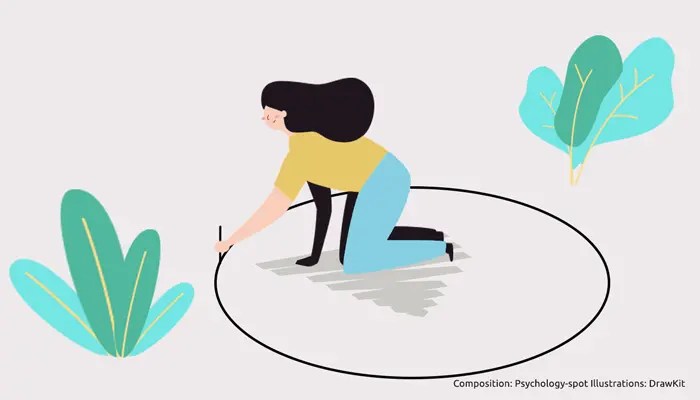
The limits are covered with a negative halo. The world around us tells us that we should not set limits. That the limits are only in our mind. And that we can achieve everything that we want.
However, this speech has two weak points. First of all, limits are not exclusively in our mind and, second, from time to time it is important to set limits to oneself, to protect ourselves. If we don’t, we are likely to end up suffering from the “self fatigue” referred to by the philosopher Byung-Chul Han.
Overexertion causes a heart attack of the soul
The limits are nothing more than a series of norms or guidelines that we commit to in order not to go beyond what would be sensible or convenient. The main risk of not setting limits to ourselves in a society that is constantly pushing us to go further is to become a victim and an executioner of ourselves.
“In this society of obligation, each one carries with him his forced labor camp”, Han wrote, referring to our tendency to demand more and more of ourselves, in pursuit of productivity and success, while silence and rest become luxuries that we refuse and plunge into feverish activity.
However, “What sickens is not the excess of responsibility and initiative, but the imperative of performance”, explained the philosopher. Having a desire to improve and aspiring to prosper is positive. The problem begins when we push ourselves more and more without giving ourselves a break, without setting healthy limits, forcing us to always go one step further, even if we have not very clear the reason for that effort. The problem is not knowing how to distinguish between superation and over-demanding.
This situation leads us to a “fundamental fatigue”, which is not a simple physical exhaustion but a fatigue of the soul. That mental breakdown, that “not being able” ends up generating frustration and often leads to a destructive self-reproach. We feel like failures. As a result, the lack of limits that, in theory, should be a developer, ends up condemning us to a vital dissatisfaction.
Limits as an expression of love and respect for oneself
Healthy limits, on the other hand, will prevent us from demanding so much of ourselves ending up collapsing under the weight of obligations and commitments that we cannot fulfill. They will prevent work from taking over our lives. They allow us to take charge and say “no” when we don’t want something and “yes” when we want or need it. Saying “we have come this far” because we do not need or want to go further. Healthy limits are ultimately an act of empowerment.
Nietzsche explained that the power of not doing, in terms of saying “no”, differs from mere helplessness or inability to do something because it is a personal, conscious and thoughtful decision that arises from self-knowledge. It is not a “not being able to”, it is a “not wanting to”.
These types of limits allow us to give a more balanced, healthy and satisfactory structure to our life. Therefore, they become a kind of protective barrier that indicates the line between what is good for us and what is not. These limits allow us to be clear about the line that we should not cross.
Those kinds of limits that we put on ourselves are not negative, on the contrary, they are an act of love and respect. They indicate that we do not need to run after any social imperative because we have clear our goals. These limits, therefore, keep us safer and healthier and can even allow us to enjoy life more by assuming a more relaxed and conscious attitude.
The 3 steps to setting limits to yourself
1. Identifying the areas of our life that need more structure or limits. Usually these are conflicting areas that have expanded so much that they have not left much room for other important areas of our lives. It can also be areas that have become a constant source of problems, conflict and tension. It can be work, a relationship, our physical and/or emotional health or even the use of mobile phones.
2. Establishing limits that reflect our goals and values. Limits should help us live better and more fully, so they must be in tune with our values and the goals we want to achieve. Limits are one more tool to keep us on the path we want to follow and prevent social forces from diverting us from the path.
3. Applying compassionate responsibility. It is counterproductive to expect perfection or punish ourselves every time we fail to respect a limit we have imposed on ourselves. The goal of these types of limits is to feel better and take care of ourselves, so we must remember to be kind to ourselves. Being too harsh or unrealistic will only lead to frustration, guilt, and hopelessness. If we do go over one of our limits, we must try to understand why and make a plan to improve or perhaps readjust that limit.
Source:
Han, B. (2017) La sociedad del cansancio. Barcelona: Herder Editorial.



